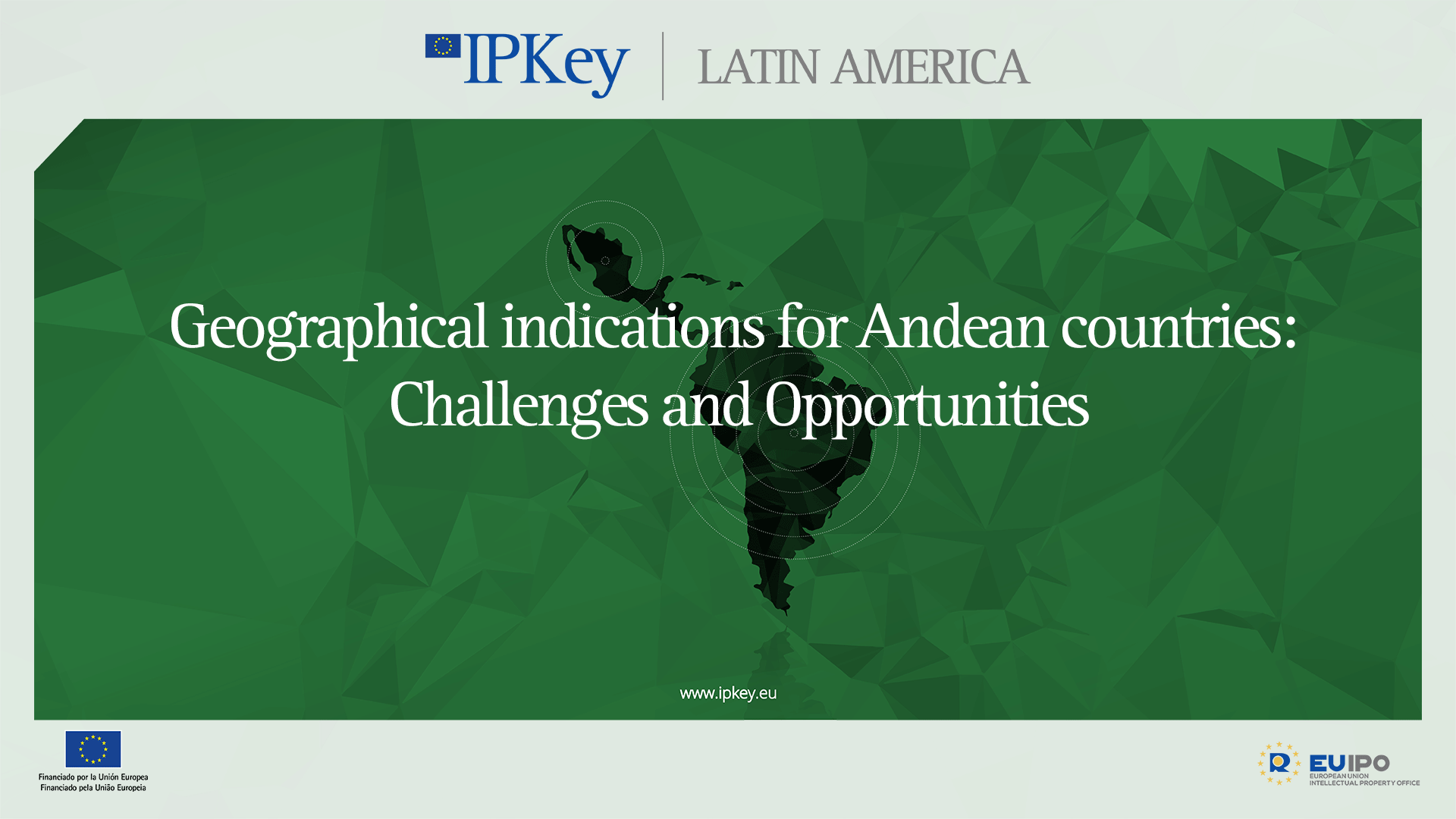Geographical indications for Andean countries: Challenges and Opportunities
From July 12th to 14th, 2023, the international seminar on "Geographical Indications and Denominations of Origin in the Andean Community" took place in Cusco, Peru. The event, organized by the IP Key Latin America Project in collaboration with the National Institute for the Defense of Free Competition and Intellectual Property Protection (Indecopi), brought together international experts, intellectual property officials from the region, representatives of Andean denominations of origin, producers interested in acquiring one, and local authorities to discuss topics related to this subject.
During three days, field visits, roundtable discussions, and talks were conducted to evaluate the current situation of geographical indications and denominations of origin in the Andean countries. Among the attendees were representatives of products with such certification, such as Aceituna de Tacna, Pallar de Ica, Cacao Amazonas Peru, and Café Villa Rica (all from Peru), Bocadillo Veleño (Colombia), La Pitahaya Amazónica de Palora (Ecuador), and Quinua Real del Altiplano Sur (Bolivia), among others. Participants debated on how to gain greater benefits from a geographical indication or designation of origin.
As part of the seminar, field visits were made to the producers of Maíz Blanco Gigante Cusco and Sal de Maras in the provinces of Calca and Urubamba, in the Sacred Valley of the Incas, Cusco region. Maíz Blanco Gigante Cusco, with its designation of origin, seeks to implement a management system that allows for effective utilization of this certification. On the other hand, Sal de Maras aspires to obtain recognition as a geographical indication, and efforts were made to strengthen the associative pillar among actors in the value chain.
The event concluded by emphasizing the relevance of intellectual property in differentiating and positioning products in national and international markets. The crucial role played by geographical indications and designations of origin in the economic and social development of Andean producers and artisans was highlighted, as they ensure the protection of their unique and high-quality products linked to their geographical origin.
The hybrid seminar held on the third day sparked great interest, reflected in the number of attendees (over 47, both in-person and online). Presentations from the invited experts and a video can be found here.
Beneficios de las IG en las comunidades agrícolas en Perú - Sergio Chuez - ES [PDF]
Diferencias entre MC IG y DO - Achille Bianchi - ES [PDF]
DO Café Villarica - Marco Huaja - ES [PDF]
DO de Colombia; Bosadillo Veleño - Leydi Sanabria - ES [PDF]
Gestión Exitosa de una IG - Aitor Pomares - ES [PDF]
IG en la UE; Beneficios Obtenidos - Giulio Menato - ES [PDF]
IG y DO; Conceptos y Ventajas - Pilar Montero - ES [PDF]
Protección de las DO en Ecuador - Maria José Bucheli - ES [PDF]
